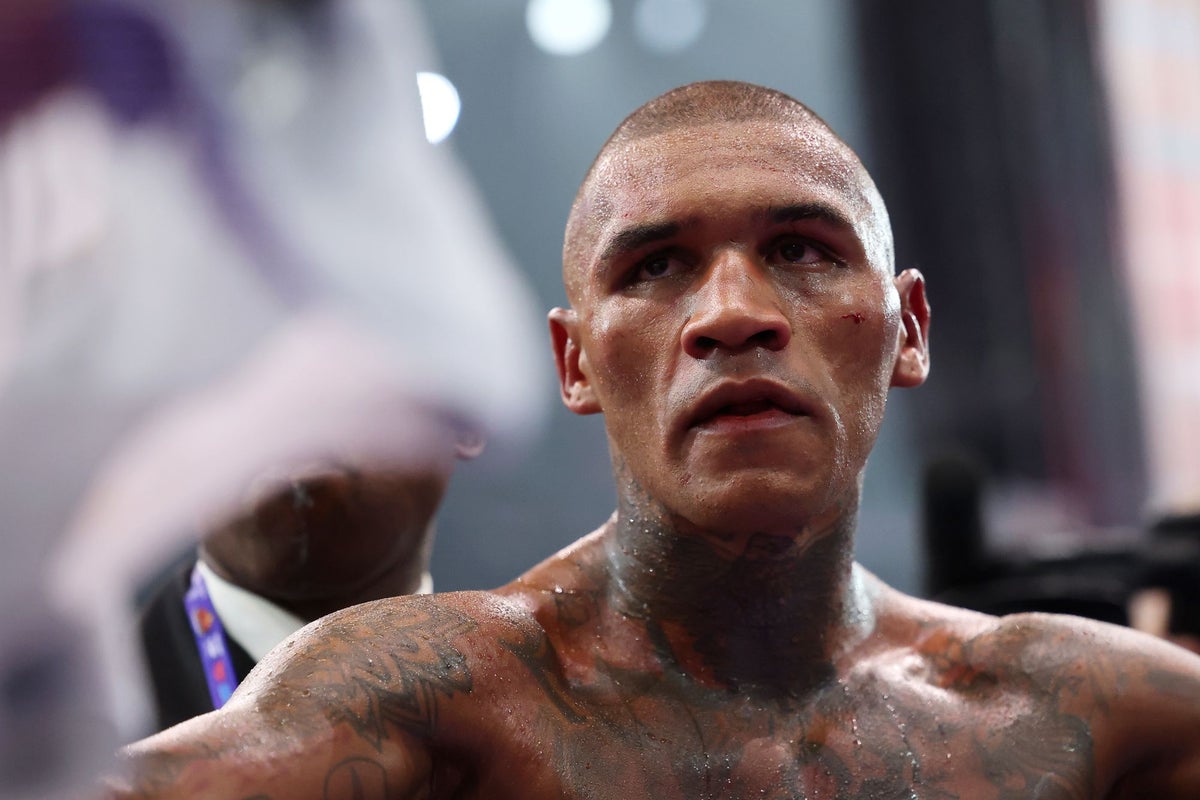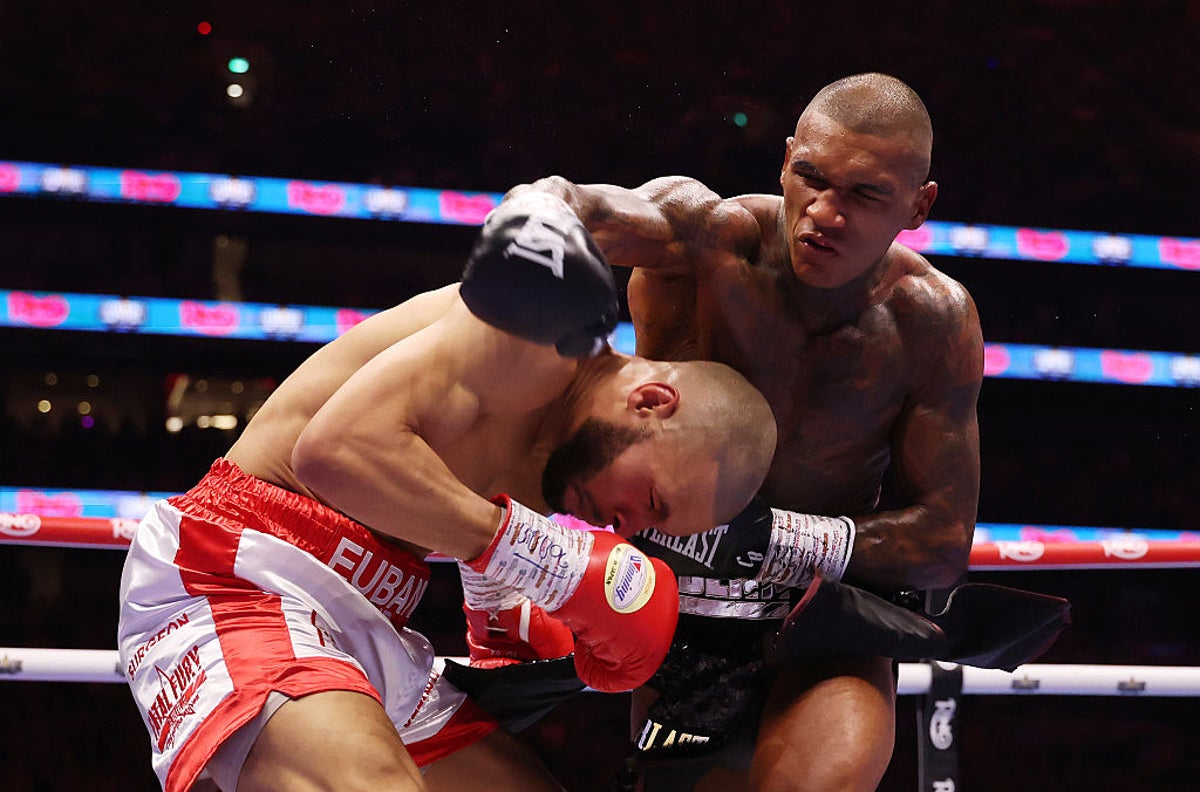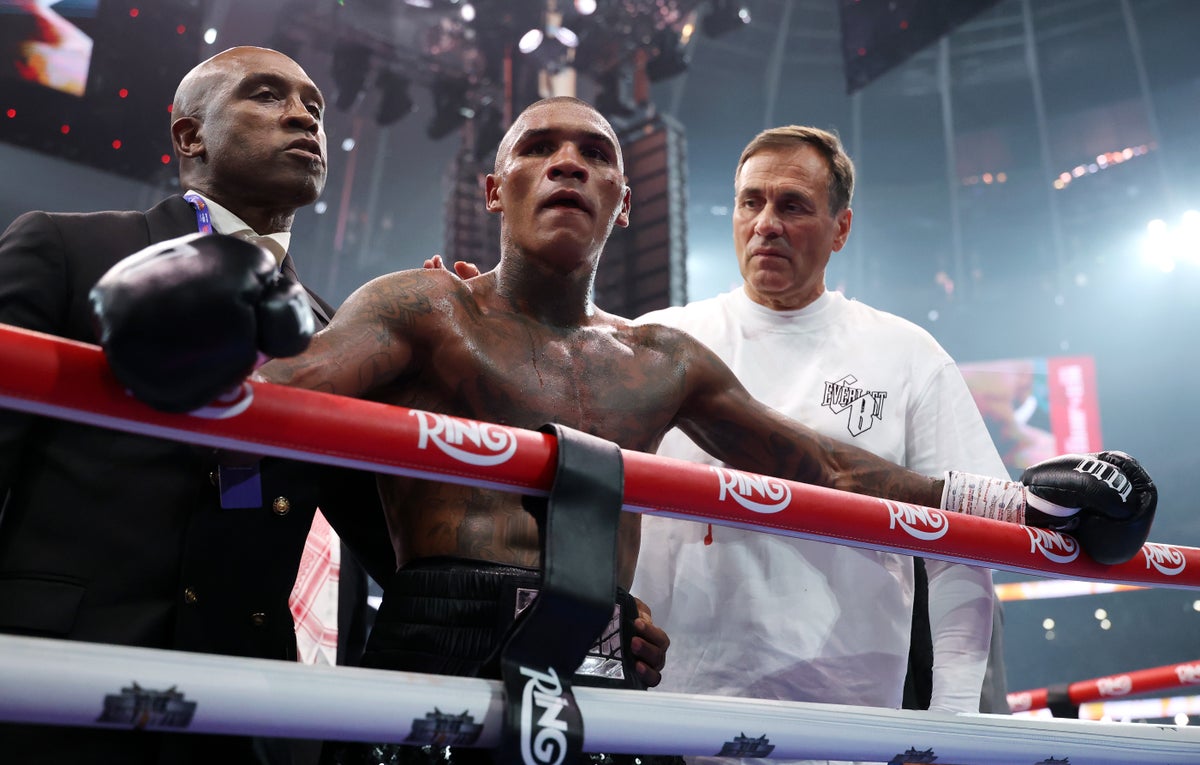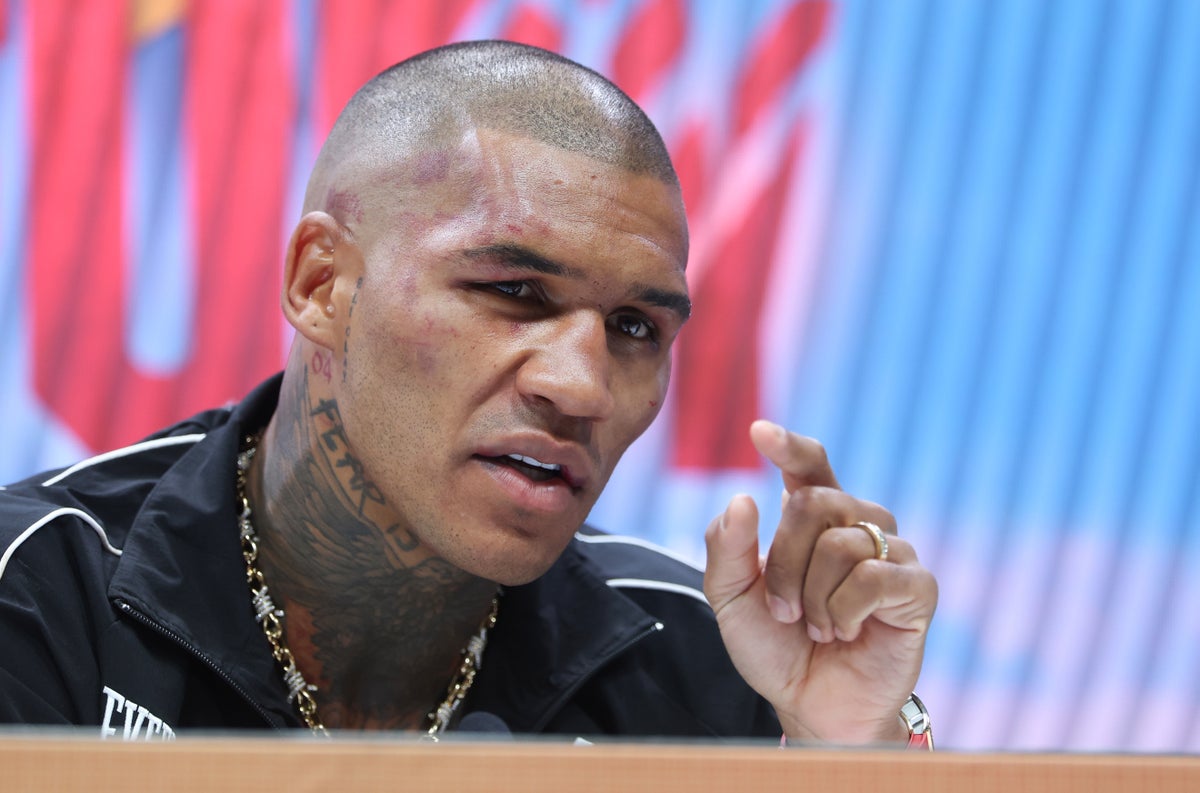Conor Benn is the embodiment of the modern gladiator, where victory in the ring is overshadowed by the drama outside it, and losing is an unforgivable sin that breeds contempt and controversy.
There is a primal energy surrounding boxing that transcends mere sport; it is a visceral spectacle where emotions run high, rivalries ignite, and legacies are forged. Conor Benn, the son of the legendary Nigel Benn, embodies this essence of brutality and passion. His recent bout against Chris Eubank Jr at Tottenham Hotspur Stadium was not merely a fight; it was a clash of familial legacies, steeped in the history of their fathers, who once engaged in one of the most riveting rivalries in British boxing history. The stakes were not just about titles but also about honor, pride, and the weight of expectation that comes with a name.
Benn’s admission that he fought with “pure rage” reveals the psychological intensity that can define fighters. This emotional state often leads to a double-edged sword. While aggression can fuel performance, it can also cloud judgment, leading to mistakes that can be exploited by a more seasoned opponent. In the case of his first encounter with Eubank Jr, Benn’s raw emotion was palpable, yet it was Eubank Jr’s experience that ultimately prevailed. This dynamic raises questions about the mental fortitude required in boxing—how does one harness that rage without succumbing to it?
The backdrop of their rivalry is crucial to understanding the stakes involved. The historical context of Nigel Benn and Chris Eubank Sr’s battles in the 1990s established a narrative that their sons inherited. This blood feud, steeped in animosity and competition, adds layers of complexity to their own encounters. The fans, drawn by nostalgia and the drama of the past, expect a show that transcends mere athletic competition. Thus, Benn’s performance is not just about winning; it’s about captivating an audience that craves excitement and spectacle.
Benn’s reflections on the fight reveal an awareness of the multifaceted pressures that come with being a professional boxer. The last three years have been tumultuous for him, marked by controversy stemming from adverse drug test results that tainted his reputation and sidelined his career. The financial and emotional toll of trying to reclaim his innocence, reportedly costing him close to £1 million, adds another layer of complexity to his psyche. The scrutiny he faced from fans and critics alike, many of whom relished in his misfortunes, likely compounded his desire to prove himself in the ring.
The psychological warfare in boxing extends beyond the physical confrontation. The mental battles—facing public perception, dealing with the weight of expectation, and overcoming personal demons—are as critical as the punches thrown. Benn’s assertion that he is a “savage” in training underscores his commitment to the sport, yet it also highlights a potential vulnerability. The pressure to perform, to entertain, and to uphold a family legacy can be an unbearable burden, one that can lead to a fighter’s downfall if not managed properly.
As Benn prepares for the rematch with Eubank Jr, the stakes are even higher. The fight on November 15 is not just a chance at redemption; it is an opportunity to redefine his narrative. The boxing world will be watching closely, scrutinizing every move, and dissecting every punch. Benn’s acknowledgment of Eubank Jr’s skills is a reflection of a fighter who understands the importance of respect in the sport. Yet, the fiery undertone of his words suggests that he remains undeterred by the challenges ahead.
The dichotomy of being a crowd-pleaser versus a champion is a recurring theme in Benn’s narrative. He expresses a desire to entertain, to leave fans wanting more, rather than merely accumulating titles. This approach aligns with a broader trend in modern boxing, where fighters are increasingly aware of their personas and the importance of engaging with audiences. The entertainment value of a fight can often outweigh the significance of the title itself, creating a complex relationship between performance and legacy.
Benn’s insistence on authenticity speaks to a larger cultural movement within sports. The modern athlete is expected to be more than just a competitor; they are brands, influencers, and entertainers. The pressure to maintain a specific image while performing at the highest level can lead to a dissonance that is difficult to navigate. Benn’s willingness to embrace his identity, regardless of public opinion, positions him as a figure who is not only fighting in the ring but also battling for his place in the narrative of boxing history.
The question he poses—“If you win a boring fight, did you even really win?”—is a provocative one that challenges the very essence of competition. It forces fans and fighters alike to reflect on the nature of victory and the importance of excitement in sport. In an era where entertainment value is paramount, Benn’s perspective might resonate with a generation that seeks not just champions but captivating stories.
As the rematch approaches, the boxing community is rife with speculation about the potential outcomes. Will Benn be able to harness his aggression while maintaining the discipline required to outmaneuver Eubank Jr? The answer may not only define his career but also shape the future of their storied rivalry. The echoes of the past linger, and the expectations are immense, but for Benn, the fight is not just about winning; it is about reclaiming his narrative, proving his worth, and solidifying his place in the ever-evolving saga of boxing.

“There wasn’t much thinking,” Conor Benn admits, mentally transporting himself back to 26 April, Tottenham Hotspur Stadium, and an 18ft x 18ft ring. “It was just pure rage. I just wanted to flatten him.” Benn is, of course, referring to Chris Eubank Jr, a man who was born to be Benn’s rival.
One could convincingly argue so, anyway. Given Nigel Benn and Eubank Sr’s gripping grudge in the 1990s, their sons’ own rivalry really is a blood feud. A blood feud that ultimately birthed a bloody, draining fight, as Eubank Jr continued his family’s superiority over the Benns by edging past Conor. It was an exhibition of true sporting melodrama, following slaps with eggs, weigh-in scares, and Eubank Sr’s last-gasp arrival. Yet, for Benn, it could have been so different on that spring evening in the English capital.
“It came so close, to where it was like: ‘I just need one more punch,’” he tells The Independent in the Matchroom gym in Essex, reflecting on moments when Eubank Jr looked in serious danger of humiliation. “He just used his experience well in there. I didn’t give him enough credit, but he deserves it for his chin, resilience, heart, engine. To deliver that sort of fight for the public, there’s only one man who could have brought that out of me: his name’s Chris.”
Benn’s own admission – that he was enraged against Eubank Jr, to the point that he was not sufficiently sensible in the ring – may tally with what you presume about the 29-year-old. Indeed, that now-trademark aggression seeps out in sporadic moments of this interview, as the Essex boxer punctuates certain points with a snarl. But really, Benn is thoughtful, articulate, polite, and humble enough to admit that Eubank Jr “is a good fighter”.
Still, that cannot have been easy for Benn to say.

And it may not be easy for him to find the right balance of aggression and pacing on 15 November, when he and Eubank Jr, 35, return to Tottenham for a keenly awaited rematch. Forget the easy references to Eubank vs Benn IV; this is Eubank Jr vs Benn II, in a rivalry that has earned its own place in British boxing lore.
“For me, it wasn’t just the actual boxing [that I had to deal with],” Benn says, “it was everything that had gone on for the last three years. It was mentally challenging. First fight back in 14 months, first fight in the UK in almost three years, first fight at 160lb. There were so many unknown variables, so it wasn’t just a matter of going in there and fighting. I’m happy with the way I dealt with it, not crumbling under the pressure.”
Benn is referring to the lengthy, gruelling saga that began when he returned two adverse drug-test results, which cost him the chance to box Eubank Jr in 2022. Benn, by various accounts, spent close to £1m trying to prove his innocence, but he was only permitted to return to a UK ring 12 months ago, with a further four months separating him from his long-awaited duel with Eubank Jr.
And as much as Benn takes pride in not “crumbling under the pressure”, he still grapples with his April defeat. Even victory next Saturday would not erase the emotions that have plagued him this year, he admits.

“Would it soften the blow a little bit? Probably not, because I still lost, so… No, definitely not. I don’t like losing in any way. Listen, we don’t prepare to lose, you don’t make the sacrifices you make to lose.”
Benn’s defeat was not only difficult because of the bragging rights that it afforded Eubank Jr; many fans delighted in Benn failing, after assuming the 29-year-old was guilty in his drug-test saga.
And yet, “I’ve actually never really had hate in person,” he says. “I’ve had maybe two that I remember. I think someone shouted something out of the crowd once, and it’s funny because there were maybe 20,000 people, and all I heard was: ‘Eggs!’ It’s laughable, but it’s just life, isn’t it? I don’t even know your name, geezer, so why do I care what you think?”
This time, Benn is referencing the misconception that he blamed his adverse findings on excessive consumption of eggs; in fact, this was an excuse offered to him by the WBC, an excuse that Benn dismissed.
“I ain’t gonna try and please nobody,” he says, though his spirited performance in April did earn him many fans. “If you don’t like me, does it make any difference to my reality? So many fighters are scared to stand on who they are, because they don’t want to get judged. Be who you are.” There is that snarl again. “Imagine living in a world where you can’t be yourself. This is who I’m gonna continue to be.”
So who is Conor Benn, really?

“I’m a savage with training. I don’t cut no corners. I put my heart and soul into this game. I look after my kids, my family want for absolutely nothing.” Another snarl. “I’m a strong man in faith, I pray every day. I don’t get involved in what the public say, what the media say, politics.” That hasn’t always been true, though, and Benn’s intense emotions during his drug-test saga proved that. Still, “I ain’t gonna sit there and go: ‘Oh, I best not say or do this, because they might not like me.’
“Ultimately, if I say I’m gonna render you unconscious and I don’t like you, I’m gonna render you unconscious. That’s what my intentions are. If you say that’s barbaric and you don’t like it, don’t tune in,” he laughs.
Benn’s promoter Eddie Hearn claims that more than one million people tuned in to the April fight with Eubank Jr, and a hefty figure will surely accompany the rematch. Talk has already turned to Benn’s next move, and to the potential of world titles, yet it feels like Benn’s future may hinge on big-name match-ups rather than championship gold.
“There’s definitely more satisfaction in that,” Benn says of being an entertainer, as opposed to being a champion. “Ultimately, when people tune in to watch me fight, I want them to go: ‘Corrr, yeah, I want to watch another one.’ That means more to me than anything. You have naysayers, you have supporters; ultimately, are you all paying?”
What follows is another question – a fascinating rhetorical. “If you win a boring fight, did you even really win?” Whatever Benn thinks deep down, his rematch with Eubank Jr is a must-win by the standard definition.
